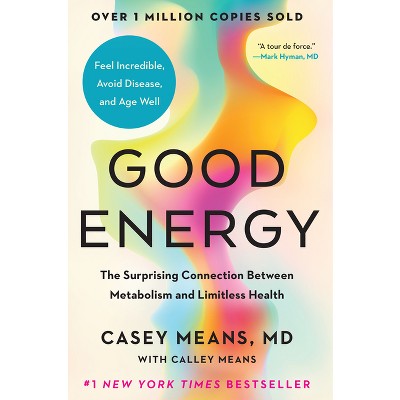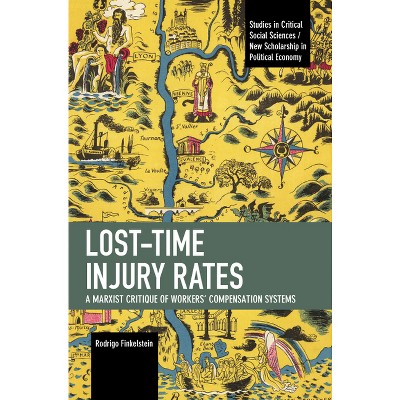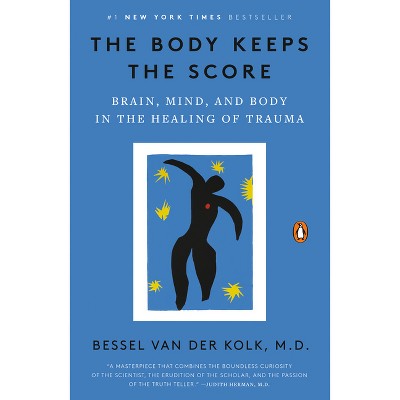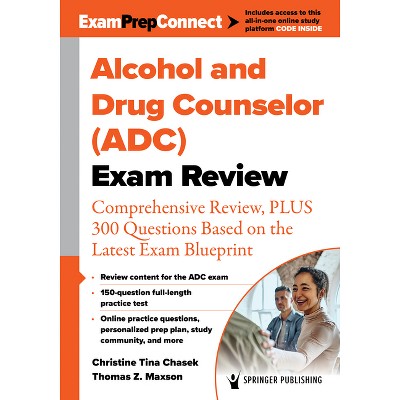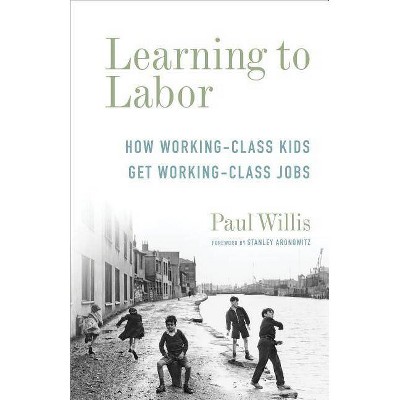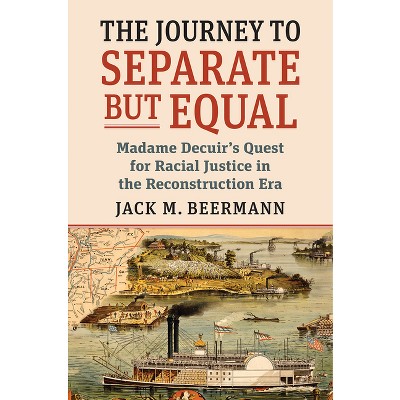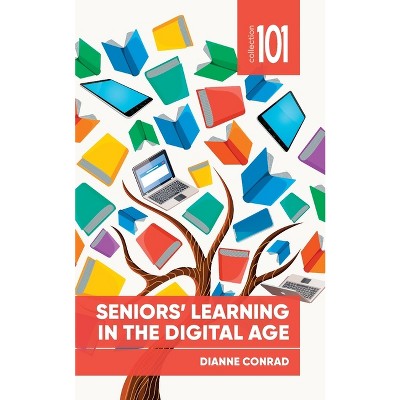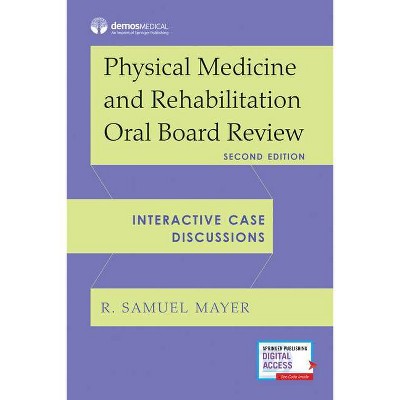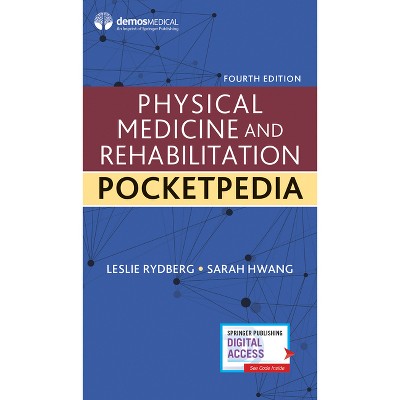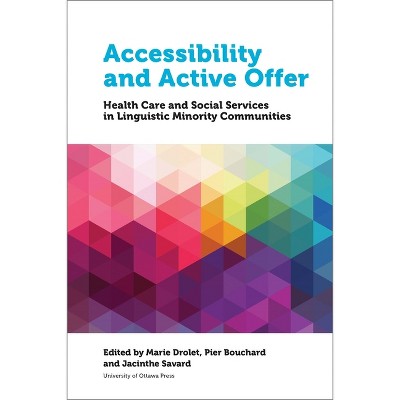Sponsored

Transformative Physical Rehabilitation - (101 Collection) by Claire-Jehanne Dubouloz Wilner (Paperback)
In Stock
Sponsored
About this item
Highlights
- In adult physical rehabilitation, the transformative learning theory presents the basis for a detailed model of Meaning Perspective Transformation in Physical Rehabilitation based on research evidence, with examples and cases, and presents directives for clinical applications.
- About the Author: Claire-Jehanne Dubouloz Wilner has been a professor of occupational therapy at the School of Rehabilitation Sciences at the University of Ottawa for more than thirty years.
- 138 Pages
- Medical, Physical Medicine & Rehabilitation
- Series Name: 101 Collection
Description
About the Book
Transformative Physical Rehabilitation: Thriving After a Major Health Event offers an innovative theoretical approach as well as a practical application to physical rehabilitation, based on the model of Meaning Perspective Transformation in Physical Rehabilitation.Book Synopsis
In adult physical rehabilitation, the transformative learning theory presents the basis for a detailed model of Meaning Perspective Transformation in Physical Rehabilitation based on research evidence, with examples and cases, and presents directives for clinical applications.
This book draws from the theoretical background of transformative learning in adult education (Mezirow) to discuss the expansion and transfer of knowledge to clinical rehabilitation and community health rehabilitation settings for rehabilitation interventions.
It also presents ground breaking findings of a fifteen-year research project on the process of meaning perspective transformation with client/patient groups. The project generated the first model of transformative change in the field of physical rehabilitation, built on the results of successive, externally funded research projects completed for the first time with various client populations undergoing interventions in occupational therapy, physiotherapy, and other physical health rehabilitation disciplines.
The book is written for clinicians, educators, and students of physical rehabilitation, as well as for those who are interested in helping a loved one deal with personal change.
Review Quotes
Dubouloz-Wilner's Transformative Physical Rehabilitation: Thriving After a Major
Health Event presents itself as a unique and profound resource for health care
practitioners in physical rehabilitation by offering a transformative learning model
focusing on patients' perception of self, their diagnosis, and rehabilitation. The book
describes the model, details inspiration, and studies that reinforce the model's components
and practical methods. The model presented in the book is a culmination of
Mezirow's perspective on transformative learning, Kuhn's paradigm theory from the
60s, Friere's conscientization theory, Gould's psychological perspective in the
seventies, and setup by Cranton's cognitive perspective.
Overview
Dubouloz-Wilner prefaces her book by sharing her captivation of human resilience
after a "major health event" (p. ix) and continues to discuss her time as an occupational
therapist in Switzerland and Canada and how these experiences with patients
in physical rehabilitation left an impression on her. She shares her observations and
their impact when she became a professor at the University of Ottawa and how those
patient transformations had an impact on her. This becomes the drive for the book
and the Model of Meaning Perspective Transformation in Physical Rehabilitation.
Dubouloz-Wilner introduces Chapter 1 by defining transformative learning and
describing the core concepts of the theory. Dubouloz-Wilner expands on the need for
the theory as "For the central concepts of the theory," Dubouloz-Wilner lists and
defines transformation, meaning perspectives or frames of reference, habits of mind,
meaning schemes or points of view, and critical reflection. The author continues to
explain the need for the theory as "neither in occupational theory nor in physiotherapy
has research provided evidence to explain personal change" (p. 9). The chapter
Journal of Transformative Education
2021, Vol. 19(3) 284-289
a The Author(s) 2021
Article reuse guidelines:
sagepub.com/journals-permissions
journals.sagepub.com/home/jtd
closes with a case study of a patient named Lisa and questions the reader how a
health care provider may approach a patient like Lisa with the transformation of
meaning perspectives in mind. The author follows an andragogical approach with
the rest of the book, explaining the research and tying it to practice in physical
rehabilitation.
Chapter 2 of the book presents a summary of research and application with
various patients about the process of transformative learning. The chapter begins
with Dubouloz-Wilner discussing the decision to use a grounded theory approach
when conducting the research. The grounded theory approach was focused on developing
a "theoretical model of meaning perspectives transformation in physical
rehabilitation" (p. 16). Dubouloz-Wilner transitions into discussing the eight rehabilitation
studies' participants used in the development of the model. During each
study, Dubouloz-Wilner looks at the clinical context and core meaning perspectives
related to transformative learning. The author also provides a synopsis table for each
study detailing research questions, study statistics, and key findings.
Chapter 3 presents the results from a 3-year meta-study conducted by Dubouloz-
Wilner that helped create the model she offers in the book. Dubouloz-Wilner initiates
the chapter explaining the meta-analysis process and its three parts: meta-data
analysis, meta-method analysis, and meta-theory analysis. The chapter describes the
model, primarily its three phases: the trigger phase, the changing phase, and the
outcome phase. The trigger phase occurs when patients have experienced that conflict
with their outlook on their situation. According to Dubouloz-Wilner's model, a
patient may encounter three categories of triggers relating to their physical rehabilitation
experience where conflict can arise.
The changing phase in Dubouloz-Wilner's model is shaped by the "participant's
critical reflection of bio-psycho-social and spiritual issues" encountered with their
diagnosis (p. 73). This chapter expands on this stage of the model by discussing
dynamics that can impact patients' interpretation and acceptance of their new reality.
The book delves further to explain this stage by using subprocesses where patients
can deconstruct and reconstruct the new meanings and meaningful perceptions
during this transformation.
Chapter 4, titled "Clinical Use of the Model," focuses on applying the model in
physical rehabilitation. Dubouloz-Wilner begins this chapter by asking if the model
can be applied to all patients. She states "Probably," but calls on practitioners to
understand that not all patients need to transform and that health care practitioners
should be mindful of their patients' needs. Dubouloz-Wilner states that health care
professionals can use the model to assist with care for patients but should still adhere
to their experience, education, and intuition when working with patients. The author
provides tables broken into the three phases of the model with vignettes regarding
patient care in each phase to help health care practitioners tie the model to clinical
practice. The strategies cover a wide base of actions and considerations, such as
being more empathetic as a provider to facilitating discussions with the patient
regarding their experiences and meaning.
Book Reviews 285
The final section in Chapter 4 titled "And the Upshot Is . . . " recaps the book's
purpose. Dubouloz-Wilner states that the book is "a call to arms" regarding the obstacles
health care providers in physical rehabilitation experience. Dubouloz-Wilner
challenges health care providers to be vigilant in observing their patients, family, and
loved ones and being ready to support themwhen they hit that transformation point in
their lives. This is based on the experiences of being in the field and the situations
that were experienced by those involved. Dubouloz-Wilner states that there may be
times when using the model in practice that difficulty can arise and notions may
seem contradictory. It is essential to restart the process. Dubouloz-Wilner also
cautions using a "one-size-fits-all" approach with the model as it is not advised as
patients have different needs and experiences.
Contributions to Transformative Education
Dubouloz-Wilner contributes to transformative education by providing a model for
practice regarding transformative education in health care. Similar to Mezirow's
transformative learning theory, both focus on the adult learner experiencing
a change in their life that has them reflecting their assumptions, or as
Dubouloz-Wilner puts it, "meanings" (Mezirow, 1991). By understanding how the
patient interprets their experience during their major health event, health care
practitioners can adjust treatment and interventions to benefit the patient by
identifying barriers to change and getting closer to being ready to accept the change.
This model can also help health care practitioners and patients collaborate once
the patient accepts the experience during the outcome phase on identifying new
behaviors and insights on their adjustment to their meaning perspective.
Transformative Physical Rehabilitation: Thriving After a Major Health Event
expands on the motivation, experience, theory, and development of the Model of
Meaning Perspective Transformation in Physical Rehabilitation. The book also
provides various patient experiences dealing with the struggle of their diagnosis and
when the patient has a change in their meaning perspective. The writing style was
not overly intense and mirrors a handbook for health care practitioners of varying
backgrounds.
The text provides a conceptual framework that influenced the development of the
Model for Meaning Perspective Transformation in Physical Rehabilitation and the
model in action with various patients and diagnoses. The examples provided by
Dubouloz-Wilner demonstrate the flexibility of the model and its applications within
the field of physical rehabilitation, thus allowing the text to be a resource to
researchers, health care practitioners, and newcomers to the areas of physical rehabilitation
and how adult learning.
Reference
Mezirow, J. (1991). Transformative dimensions of adult learning. Jossey-Bass.
About the Author
Claire-Jehanne Dubouloz Wilner has been a professor of occupational therapy at the School of Rehabilitation Sciences at the University of Ottawa for more than thirty years. Previously, she enjoyed a ten-year career as a clinical therapist at Montréal's Gingras-Lindsay Rehabilitation Institute. She has been a key player in the development of rehabilitation sciences education at the University of Ottawa, and has received many external research funds and prizes and awards, including the prestigious Muriel Driver Award (2014) and SSHRC grants.